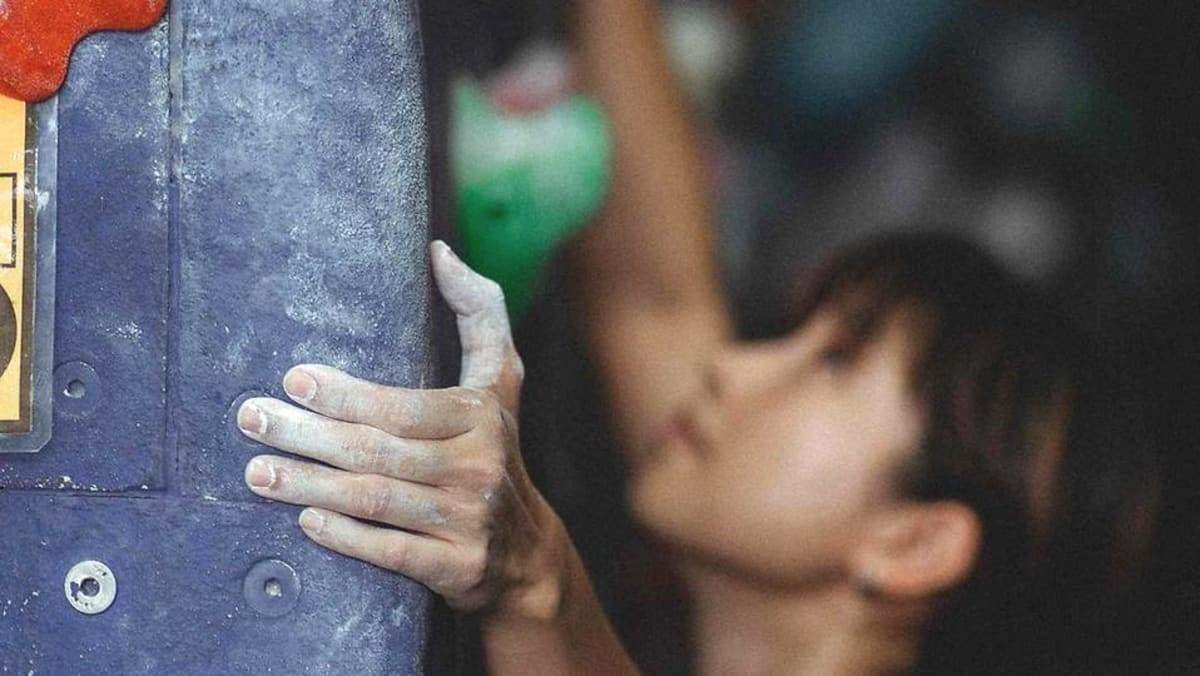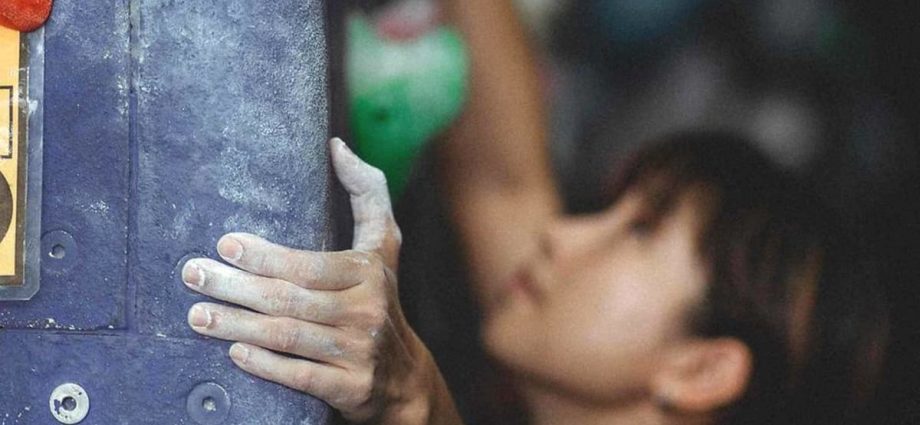
A LUCRATIVE MARKET
At Project Send, all its corporate-related wellness programmes are oversubscribed.
Mr Ng said the skills learnt in bouldering help climbers perform under pressure in their daily lives.
At the gym, different routes are labelled with corresponding grades, which enables climbers to perform within their abilities.
“(Bouldering) promotes working together with your colleagues because you come here after work and you collaboratively solve something on the wall together. You cheer each other on, you spur each other on, and I think that’s a very, very healthy thing to do with your colleague, ” said Mr Ng.
Over at a shophouse on Stanley Street in the Central Business District, sounds of hums and gongs emanate from meditation studio SPACE2B.
The space offers what is known as sound baths. This involves meditating with the practice accompanied by resonant sounds, some of which are produced by singing bowls.
And the studio is now seeing twice as much interest from businesses looking to engage their services, compared to the pre-pandemic days.
“We’re getting so many enquiries, so many requests to hold our sessions at the corporate offices, and also for them to come over here, and to have sessions where they can have the overseas colleagues dial in,” said Ms Christina Nikolovski Low, founder of the studio.
“CUSTOMERS SHOULD BE DISCERNING”
As more businesses try to cash in on the rising awareness of mental health issues, clinical psychologist Jocelyn Cheng said it is important to make distinctions.
“In terms of mental wellness, there are good supplements or practices that keep up with the idea of self-care,” she added.
“Then, there is the other aspect, in terms of therapies which of these are scientifically backed-up. So I think that’s where the differentiation lies, and it gets a bit blurred.”
Determining the scientific benefits of programmes, particularly those that are meditation-based, is not straightforward, she said, adding that consumers should be discerning.
“I think we can start looking at whether these programmes that are being run are accredited within Singapore, and if there are some international societies that back them up,” she added.
“If you hear terms like mindfulness-based cognitive therapy or stress reduction, you would be more certain that they are evidence-based secular practices.”
Watch CNA Leadership Summit live on 10 October 2022 from 1.30pm SGT via cna.asia/leadership-summit.

